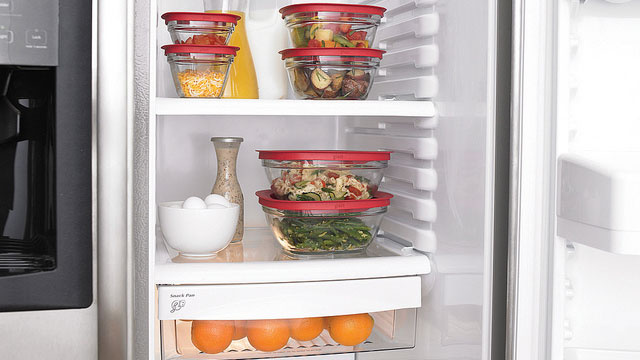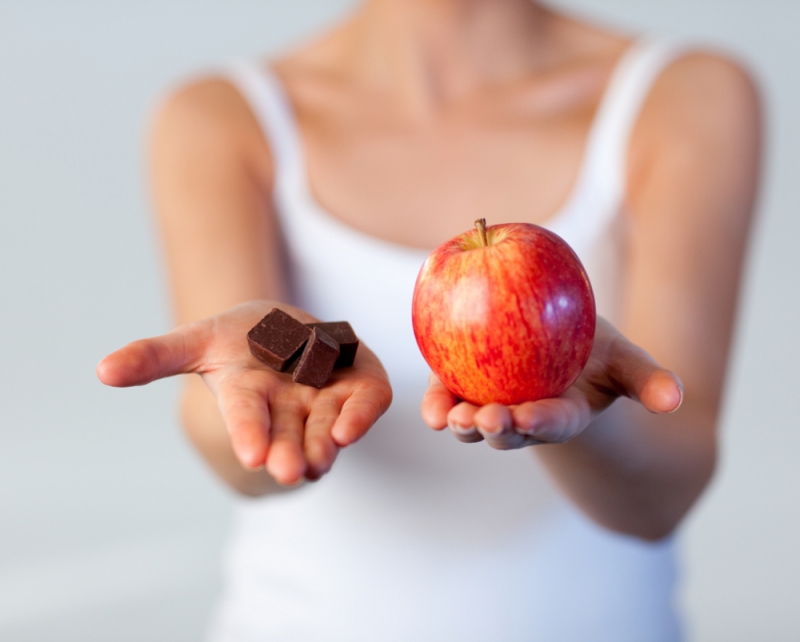Common Diet Mistakes Part 2
/This is the second part of my article about making some changes to our diets and lifestyles for the better. The first part was about simple swaps. This part is the all-important LIFESTYLE section that I think often gets left out of "easy diet tips for everybody" type articles.
If you haven't previously read part one of this post, click here.
The reality is that every one of us is an individual.
There is not one magic diet that is right for absolutely everyone. We all have different genetics, different routines, and different goals.
Granted, there are things that are universally BAD for everyone and that is mainly what is the idea behind the first part of this article.
For example, trans fats are bad. Plain and simple. Avoid them and swap them out for something better. That is an easy diet hack.
But, when it comes to optimizing each individual's health and level of nutrition, the same things are not going to apply to all people. One of the main reasons that this is so is GENETICS. Can't change that, we have the genetic makeup that we have. Another huge reason is LIFESTYLE.
Part of the lifestyle component simply is about the nature of your interests. For example, if you enjoy competing in triathlons, then clearly your nutritional requirements are going to be different from someone who is not a competitive athlete. Being a triathlete is great, but certainly not a requirement of good health.
Yet, athletes and non-athletes alike do require adequate sleep. What is an adequate amount of sleep? Well, that depends slightly on the individual. Not everyone requires the same amount of sleep. Still, I guarantee you that if you are waking up tired everyday, dragging throughout the day, and requiring massive amounts of caffeine, something is amiss. Whatever you're currently doing is not working. It could be a sleep time issue. It could be a sleep quality issue. It could be a hormonal imbalance such as hypothyroidism. There could be a food component contributing to fluctuations in blood sugar or causing unpleasant immune reactions. Either way, the situation needs attention.
And that is my point.
We need to pay attention to what is going on in our lives and not always look for the quick fix. Take the given situation above, that tired person may be able to have a quick fix: if she is is able to rule out sleep and diet, goes to the doctor and her thyroid tests come back showing hypothyroidism, then perhaps thyroid medication is the answer. A seemingly quick fix. But if the reality is that this person has a very stressful job that has her eating convenience meals on the run and working into the wee hours of the morning, only to have to wake up at the crack of dawn, then the fix is less simple.
This person needs to prioritize her health and focus on how to shift her lifestyle, or else she will burn out and probably end up with some serious chronic illnesses.
There are a lot of people who fall under this category of needing to make lifestyle changes in order to improve their health. These are not as easy as simple swaps, but they can be very powerful.
Below, I'm going to mention a few lifestyle components that I think are key to health and wellness. I will hopefully be presenting this information in way that inspires and motivates change. I want you all to feel as though you are in control of your own lives and despite how you may currently feel, you are capable of prioritizing your health and making lifestyle adjustments.
COOKING
The great Michael Pollan has tackled this one recently and I think he is right. We need to prepare our own food. Pollan argues that taking back control of the cooking process, meaning cooking our own food, is the most powerful thing we can do to improve our health and improve our food system.
If you currently do not cook for yourself then that needs to be addressed. Why are you outsourcing the processing of your food?
Sometimes, the issue is simply that we do not feel as though we know how to cook. I guarantee you cooking is quite simple. It can get super fancy, no doubt, but unless you want to make intricate designs with your food or compete on Top Chef, then basic cooking is quite easy.
Learn how to cook.
This can mean taking a class, asking a friend or family member who cooks to teach you, reading a book or articles on the internet, or watching a cooking show. I don't care how you like to learn, just that you gain the confidence you need to purchase whole foods and bring them back to your kitchen and transform them into a meal you will eat.
If it helps, know this: cooking is really just about paying attention.
As long as you are watching what you are doing, the classic "oven-on-fire" scenario is very unlikely. A delicious meal can require only basic steps such as chopping vegetables, boiling water or using a skillet. Demystify cooking and you will find yourself moving throughout your kitchen with confidence.
The second reason that people may not cook is that they simply don't like to cook. I'm sorry, but that is not a good enough reason to abandon cooking. Instead, find a way to make it more fun. Play music while you cook or have a TV show on in the background. (Just not a show that you are seriously trying to pay attention to. Something you can kind of listen to while you cook.) Maybe share cooking with your partner or with your children. Make it a family affair. Whatever makes it more enjoyable. And honestly, a lot of people who say they don't enjoy cooking really mean that they don't think they are a great cook or don't love the food they make. See the part above about learning to cook.
The third reason is timing. Not having time to cook. Which is an issue on its own so let's discuss this in its own section:
MEAL PLANNING
The second part of cooking for yourself is meal planning. If you feel as though you simply don't have time to cook, the issue is timing.
The solution is planning.
If your schedule is crazy, you may not have time to cook fresh meals each day. Instead, find a day in your schedule when you can make time to make large batches of food to have for the week. For example, make a big batch of oatmeal, my breakfast bake, or coconut muffins and then you have breakfast for the week. Roast a large pan of vegetables and then you can simply reheat some at a time. If you make a dinner, double or triple the amount you make so that you can have left overs for lunches. You can make a whole pan of chicken at a time and just reheat throughout the week. Make big pots of rice or quinoa and beans. Often it requires just as much time to make a meal as it does to make a double batch of that same meal. Make the double batch and save yourself the time tomorrow.
Set aside some time one day (or even less time on two days) a week and get yourself prepped for your busy days.
Snacks can be treated the same way. Chop up a large amount of easy to snack on veggies so that you can grab some each morning and take them with you. Create cute baggies of fruit and cheese that are ready to go. Make a homemade trail mix with raw nuts and seeds.
These things don't actually take very much time, they just seem overwhelming when you are currently trying to be three places at once. Instead, make meal preparation part of your weekly agenda and then you will find yourself set for the week. When your diet improves, thanks to having healthy food ready to go, your overall health and wellbeing will improve. Your energy levels should be better and you might even feel more even-keeled, all which will help you tackle your busy life.
FOOD SHOPPING
How you purchase your food is important.
One of the best things you can do for the food system and for your pocketbook, is shop local. Go to farmers markets. They are awesome. If you have the time, you can make an entire outing of it. Take the kids, the dog, go with a friend. It is a good time. Sometimes at the end of the day, farmers will even offer up deals on the produce they haven't sold. Also, the food quality is so much better. You want good quality food. It is more bang for your buck. The food is fresher because it was grown locally instead of shipped a great distance. Talk to your farmer and find out about their practices. Usually farmers markets are full of organic (or organic practicing without the certification) farms.
If time is an issue, then you have a few things that can help. For those with the financial means, there are companies now that will home deliver fresh produce to your door. For the majority of people for whom that is not an option, get to know your store. Food shopping can be a very quick thing if you know your store and what you need. I fly through my local health food store because I know that place like the back of my hand. I have a list of what I need and I'm in and out in a flash. Unless I have spare time, in which case I linger and explore because I like food. But that's just me.
And yes, health food stores are your friend. You don't have to buy all their expensive products, but they tend to have the best produce (outside of farmers markets). You need access to good food if you are going to buy good food. Unfortunately, there are food deserts in this country, and that is a whole other conversation. But for most people, good food can be found if you take the effort to look. Farmers markets are becoming prolific and even mainstream stores are improving their produce selections. Shop the perimeters where the whole foods live and learn what days the produce is put out fresh. Usually, the best day is Wednesday.
And this has to be said: prioritize food in your budget. This country is known for spending the smallest percentage of their income on food. That would be an accomplishment if that meant we were eating super high quality food for that price, but we're not. Cultures with much lower rates of obesity and chronic diseases, such as France, spend a higher percentage of their budget on food. They value their food.
And FYI: one of the easiest ways to reduce your cost is to eat less meat. I'm not even talking about being a vegetarian, just substituting a few animal protein meals a week with beans/legumes is a huge money saver. Dried beans and legumes are CHEAP.
SLEEP HYGIENE
Sleep is a big deal. I know that society can sometimes glorify the ability to function on little sleep, but that is not something we should be striving for. Sleep is vital to our health. We will die if we go too long without sleep. Sleep is essential to our immune system, hormone regulation and muscle/tissue repair; do not discredit it. And for the record: caffeine does not literally provide us with energy. It binds to receptors in our brains, thus preventing adenosine from binding to those receptors. When bound to its receptor, adenosine tells the body to slow down nerve cell activity, causing drowsiness. Therefore, the way to think of caffeine is that it blocks you from feeling drowsy; it does not provide your body with more ATP (your cell's energy source). I'm telling you this so that you understand why consuming infinite amounts of caffeine is not a good thing. I'm not against moderate caffeine consumption, as there are some benefits with coffee and tea, but high intakes of caffeine can be very disruptive to your neurotransmitters and should not be seen as a legitimate substitute for sleep.
If you are not getting adequate sleep, there are multiple things to consider. The first, of course, is how much time are you devoting to sleep. If you are only allowing a few hours each night for sleep, this is not enough. I realize that sometimes life circumstances mandate this, but you really will not be able to keep this up long term. I couldn't even begin to address how to do this for everyone because the situations that can lead to lack of sleep time are as varied as there are people on the planet. So I will just say this: I urge you to not accept getting no where near your required sleep as the way it must be. I don't know if this means having to ask for help, dialing back on responsibility, or a massive schedule overhaul, but the first step is identifying this as a need that deserves to be addressed. I'm sure it can feel insurmountable to some, but I think there are a lot of people who have simply accepted their situation as a normal byproduct of a busy life. It shouldn't have to be.
Then there is the issue of quality of sleep. If you are putting in the time, but either having trouble falling asleep, waking up in the middle of the night, tossing and turning etc. then there may be some things that can help. This is the sleep hygiene part. Sleep hygiene is getting more attention these days so you may have heard a bunch of these before, but they do bear repeating:
- Turn off electronics at least an hour before bed.
- Dim the lights with the sunset. You do not need your home to be lit up like an amusement park all evening. Dim the lights on your electronics with the sunset as well if you can.
- Expose yourself to darkness. If you have a yard or a safe space to step outside at night in the dark, this can be very helpful.
- Make a routine at night before bedtime so that your body gets accustomed to it.
- Try to go to bed and wake up at similar hours throughout the week.
- Try teas, tinctures or other herbs that help the body relax for sleep.
- If your mind has trouble turning off, keep a journal at your bedside to write down any pressing ideas and remove them from your thoughts.
- Try nightly meditation. Even while you are in bed. You can purchase guided meditation CDs or find them on youtube to play at bedtime.
- Try healing modalities such as massage, acupuncture or Reiki.
BODY IMAGE
I felt that I had to at least mention this topic since we are talking about lifestyle. The relationship that you have with your body (and thus with your food and eating habits) is so important to your overall wellbeing. It is a little bit tangential to the previous topics, but still very relevant in my view. It is extremely hard to have a healthy relationship with your food if you have a poor relationship with yourself. Many people care about improving their diet and lifestyle because they want to change themselves in some way. But there is a vast difference between wanting to be healthier in order to feel better, and hating your body. Self-love is vital to overall wellbeing and it is also a key component to any lifestyle change. If you are not kind to yourself, it will be very hard to value yourself enough to make lifestyle shifts. It also won't make you happy. If you do not love yourself, then any external changes won't be enough. If you struggle with body image, as so many of us do, I encourage you to work on that first. If you feel as though the problem requires professional attention, I encourage you to seek the care you need.
If this topic is of interest to you, I wrote an article that talks about body image and our relationship to food for Elephant Journal that you can find HERE.
Photo credit: theselfsufficientliving.com




















